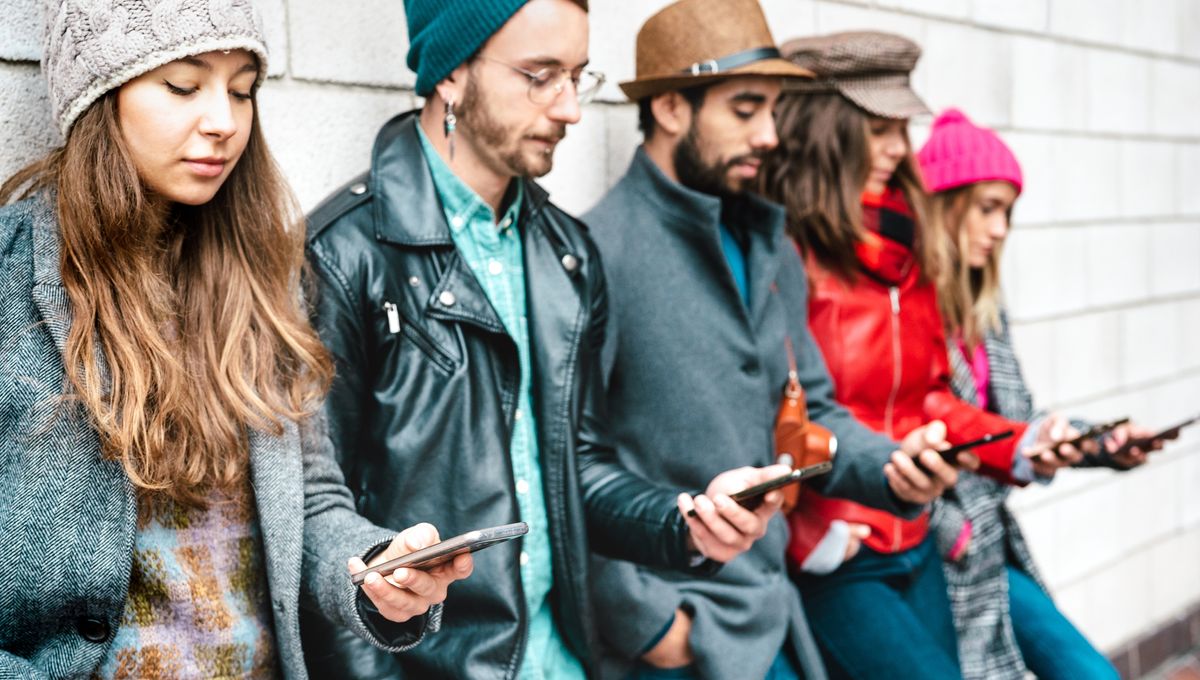
It’s the topic of the moment. Whether you thought it meant something NSFW (naughty naughty) or whether you just find it maddening, there’s no escaping it: “phubbing” is a definite candidate for Word of the Year (according to the very unofficial IFLScience rankings). But, in case you’ve missed out, let’s take one last voyage of discovery as we learn what on Earth phubbing is, and what effects it can have on us.
The concept of phubbing came careering into our lives way back in 2012. The word is both a neologism and a portmanteau, born out of a desire to put a name to the plague of using one’s “phone” to “snub” people, and also a desire to sell lots of dictionaries.
With the ubiquity of smartphones these days, many of us will have succumbed to phubbing without even noticing. It’s so easy to let a quick check of a notification give way to a doom-scroll through whatever Elon Musk’s app is called this week, even when you know you should really be listening to what the person next to you is saying.
Unfortunately, research has shown that what might seem like a harmless, if annoying, habit can have a very real impact on our relationships.
Romantic relationships are at particular risk from repeated phubbing. One recent study suggested that phubbing your partner could be making them less happy with your relationship – hardly surprising, if every time you sit down for a deep-and-meaningful they’re presented with a view of your, no doubt delightful, phone case instead of your face.
Another paper published this year found that phubbing was a significant predictor of poor marital satisfaction, suggesting that marriage counselors should consider the impact of technology in their practice and highlighting the need for ever-improving communication skills in couples.
But it’s not just romantic relationships that phubbing puts at risk. Research has shown that it’s associated with lower social intelligence, which is fairly bleak news when it comes to maintaining friendships. This is despite the fact that one of the original goals of social media and smartphone technology was to help people stay connected. The issue is that if you’re sitting in a room of flesh-and-blood humans, it pays to focus on them rather than your virtual contacts.
Thankfully, there was some good news: it’s possible to learn social intelligence, so if you are concerned about real-life friendships, it’s never too late to put your phone down and work on them.
The other relationship that can be negatively affected by phubbing is that between parents and their children. Parents who regularly phub their kids could be pushing them into smartphone “addiction” – although, it must be said that the idea of phone addiction is disputed by psychologists. Either way, feeling ignored by a parent is unlikely to be the route to a happy childhood.
A lot of explanations for why we’re so prone to phubbing have been put forward. They include a lack of self-control, a fear of missing out on what’s happening in the digital world, or the simple fact of needing to relieve boredom.
Smartphones are going nowhere, and nor is our always-on, emails at the weekend, 24/7 news cycle society, no matter how many individuals choose to eschew the grind. People will continue to phub each other, and researchers will keep digging into how this behavior is impacting us. Hopefully, you’ve now got a good idea of what phubbing is and how it could be harmful – so maybe it’s time to put the phone down for a bit and reconnect with the real world.
Source Link: Now That Everyone’s Heard About Phubbing, It’s Time To Put It To Bed